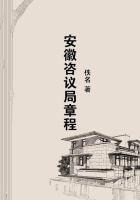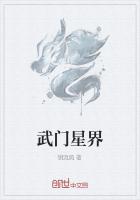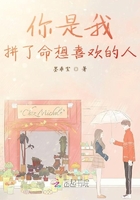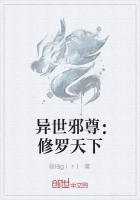Of decent old gold, old silver, old bronze, of old chased and jewelled artistry, were the objects that, successively produced, had ended by numerously dotting the counter where the shopman's slim light (107) fingers, with neat nails, touched them at moments, briefly, nervously, tenderly, as those of a chess-player rest, a few seconds, over the board, on a figure he thinks he may move and then may not: small florid ancientries, ornaments, pendants, lockets, brooches, buckles, pretexts for dim brilliants, bloodless rubies, pearls either too large or too opaque for value; miniatures mounted with diamonds that had ceased to dazzle; snuff-boxes presented to--or by--the too questionable great; cups, trays, taper-stands, suggestive of pawn-tickets, archaic and brown, that would themselves, if preserved, have been prized curiosities. A few commemorative medals of neat outline but dull reference; a classic monument or two, things of the first years of the century; things consular, Napoleonic, temples, obelisks, arches, tinily re-embodied, completed the discreet cluster; in which, however, even after tentative re-enforcement from several quaint rings, intaglios, amethysts, carbuncles, each of which had found a home in the ancient sallow satin of some weakly-snapping little box, there was, in spite of the due proportion of faint poetry, no great force of persuasion. They looked, the visitors, they touched, they vaguely pretended to consider, but with scepticism, so far as courtesy permitted, in the quality of their attention. It was impossible they should n't, after a little, tacitly agree as to the absurdity of carrying to Maggie a token from such a stock. It would be--that was the difficulty--pretentious without being "good"; too usual, as a treasure, to have been an inspiration of the giver, and yet too primitive to be taken as tribute welcome on any terms. They had been out more than (108) two hours and evidently had found nothing. It forced from Charlotte a rueful admission.
"It ought, really, if it should be a thing of this sort, to take its little value from having belonged to one's self."
"Ecco!" said the Prince--just triumphantly enough. "There you are."
Behind the dealer were sundry small cupboards in the wall. Two or three of these Charlotte had seen him open, so that her eyes found themselves resting on those he had n't visited. But she granted the whole mistake.
"There's nothing here she could wear."
It was only after a moment that her companion rejoined: "Is there anything--do you think--that you could?"
It made her just start. She did n't at all events look at the objects; she but looked for an instant very directly at him. "No."
"Ah!" the Prince quietly exclaimed.
"Would it be," Charlotte asked, "your idea to offer me something?"
"Well, why not--as a small ricordo?"
"But a ricordo of what?"
"Why of 'this'--as you yourself say. Of this little hunt."
"Oh I say it--but has n't my whole point been that I don't ask you to.
Therefore," she demanded--but smiling at him now--"where's the logic?"
"Oh the logic--!" he laughed.
"But logic's everything. That at least is how I feel it. A ricordo from you--from you to me--is a ricordo of nothing. It has no reference."
(109) "Ah my dear!" he vaguely protested. Their entertainer meanwhile stood there with his eyes on them, and the girl, though at this minute more interested in her passage with her friend than in anything else, again met his gaze. It was a comfort to her that their foreign tongue covered what they said--and they might have appeared of course, as the Prince now had one of the snuff-boxes in his hand, to be discussing a purchase.
"You don't refer," she went on to her companion. "I refer."
He had lifted the lid of his little box and he looked into it hard.
"Do you mean by that then that you would be free--?"
"'Free'--?"
"To offer me something?"
This gave her a longer pause, and when she spoke again she might have seemed, oddly, to be addressing the dealer. "Would you allow me--?"
"No," said the Prince into his little box.
"You would n't accept it from me?"
"No," he repeated in the same way.
She exhaled a long breath that was like a guarded sigh. "But you've touched an idea that HAS been mine. It's what I've wanted." Then she added:
"It was what I hoped."
He put down his box--this had drawn his eyes. He made nothing, clearly, of the little man's attention. "It's what you brought me out for?"
"Well, that's at any rate," she returned, "my own affair. But it won't do?"
"It won't do, cara mia."
(110) "It's impossible?"
"It's impossible." And he took up one of the brooches.
She had another pause, while the shopman only waited. "If I were to accept from you one of these charming little ornaments as you suggest, what should I do with it?"
He was perhaps at last a little irritated; he even--as if HE might understand--looked vaguely across at their host. "Wear it, per Bacco!"
"Where then, please? Under my clothes?"
"Wherever you like. But it is n't then, if you will," he added, "worth talking about."
"It's only worth talking about, mio caro," she smiled, "from your having begun it. My question is only reasonable--so that your idea may stand or fall by your answer to it. If I should pin one of these things on for you would it be, to your mind, that I might go home and show it to Maggie as your present?"
They had had between them often in talk the refrain, jocosely, descriptively applied, of "old Roman." It had been, as a pleasantry, in the other time, his explanation to her of everything; but nothing truly had even seemed so old-Roman as the shrug in which he now indulged. "Why in the world not?"
"Because--on our basis--it would be impossible to give her an account of the pretext."
"The pretext--?" He wondered.
"The occasion. This ramble that we shall have had together and that we're not to speak of."
(111) "Oh yes," he said after a moment--"I remember we're not to speak of it."
"That of course you're pledged to. And the one thing, you see, goes with the other. So you don't insist."















